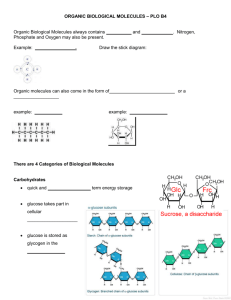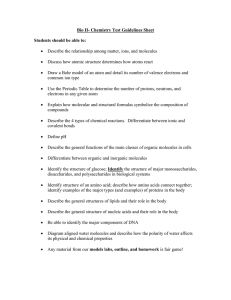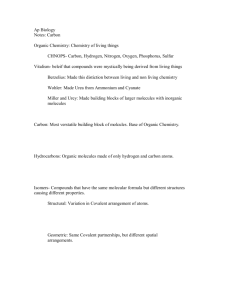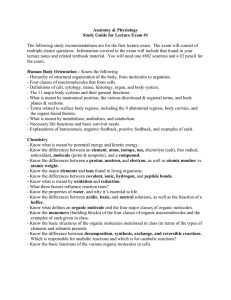JOINT OrgaNIc & chemIcal bIOlOgY semINar Professor Brian McNaughton
advertisement
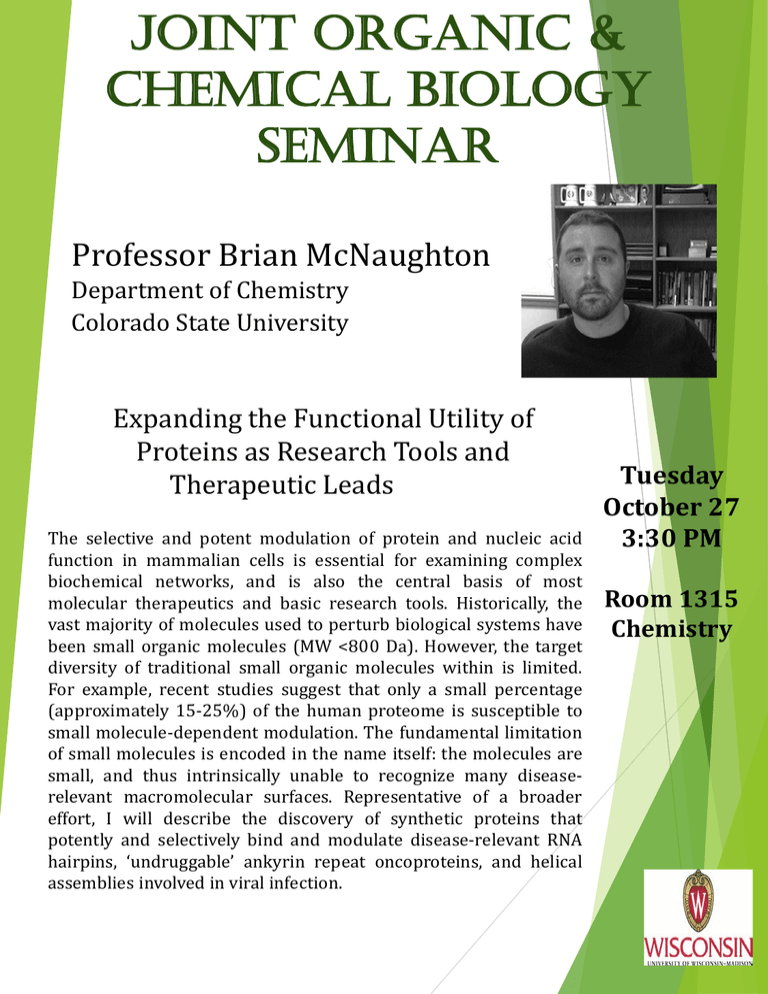
JOINT Organic & chemical bioLOGY seminar Professor Brian McNaughton Department of Chemistry Colorado State University Expanding the Functional Utility of Proteins as Research Tools and Therapeutic Leads The selective and potent modulation of protein and nucleic acid function in mammalian cells is essential for examining complex biochemical networks, and is also the central basis of most molecular therapeutics and basic research tools. Historically, the vast majority of molecules used to perturb biological systems have been small organic molecules (MW <800 Da). However, the target diversity of traditional small organic molecules within is limited. For example, recent studies suggest that only a small percentage (approximately 15-25%) of the human proteome is susceptible to small molecule-dependent modulation. The fundamental limitation of small molecules is encoded in the name itself: the molecules are small, and thus intrinsically unable to recognize many diseaserelevant macromolecular surfaces. Representative of a broader effort, I will describe the discovery of synthetic proteins that potently and selectively bind and modulate disease-relevant RNA hairpins, ‘undruggable’ ankyrin repeat oncoproteins, and helical assemblies involved in viral infection. Tuesday October 27 3:30 PM Room 1315 Chemistry

